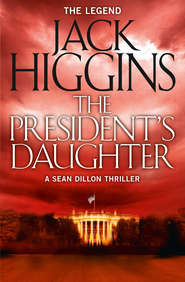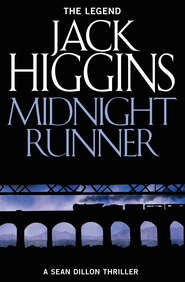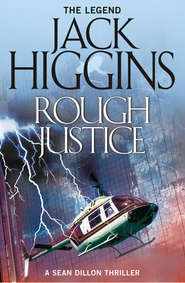По всем вопросам обращайтесь на: info@litportal.ru
(©) 2003-2024.
✖
On Dangerous Ground
Автор
Год написания книги
2019
Настройки чтения
Размер шрифта
Высота строк
Поля
There it might have ended except for the fact that, having read the article in the New York Times on Hong Kong and its relations with China, Tony Jackson was struck by the coincidence of Tanner’s story. This became doubly important because Tanner had died in the early hours of Sunday morning and Jackson always had Sunday lunch, his hospital shifts permitting, at his grandfather’s home in Little Italy where his mother, since the death of his grandmother, kept house for her father in some style.
Jackson’s grandfather, after whom he had been named, was called Antonio Mori and he had been born by only a whisker in America because his pregnant mother had arrived from Palermo in Sicily just in time to produce her baby at Ellis Island. Twenty-four hours only, but good enough and little Antonio was American born.
His father had friends of the right sort, friends in the Mafia. Antonio had worked briefly as a labourer until these friends had put him into first the olive oil and then the restaurant business. He had kept his mouth shut and always done as he was told, finally achieving wealth and prominence in the construction industry.
His daughter hadn’t married a Sicilian, he accepted that, just as he accepted the death of his wife from leukaemia. His son-in-law, a rich Anglo-Saxon attorney, gave the family respectability. His death was a convenience. It brought Mori and his beloved daughter together again, plus his fine grandson, so brilliant that he had gone to Harvard. No matter that he was a saint and chose medicine. Mori could make enough money for all of them because he was Mafia, an important member of the Luca family whose leader, Don Giovanni Luca, in spite of having returned to Sicily, was Capo di tutti Capi: Boss of all the Bosses in the whole of the Mafia. The respect that earned for Mori couldn’t be paid for.
When Jackson arrived at his grandfather’s house, his mother, Rosa, was in the kitchen supervising the meal with the maid, Maria. She turned, still handsome in spite of grey in her dark hair, kissed him on both cheeks then held him off.
‘You look terrible. Shadows under the eyes.’
‘Mama, I did the night shift. I lay on my bed three hours then I showered and came here because I didn’t want to disappoint you.’
‘You’re a good boy. Go and see your grandfather.’
Jackson went into the sitting room where he found Mori reading the Sunday paper. He leaned down to kiss his grandfather on the cheek and Mori said, ‘I heard your mother and she’s right. You do good and kill yourself at the same time. Here, have a glass of red wine.’
Jackson accepted it and drank some with pleasure. ‘That’s good.’
‘You had an interesting night?’ Mori was genuinely interested in his grandson’s doings. In fact he bored his friends with his praises of the young man.
Jackson, aware that his grandfather indulged him, went to the French window, opened it and lit a cigarette. He turned. ‘Remember the Solazzo wedding last month?’
‘Yes.’
‘You were talking with Carl Morgan; you’d just introduced me.’
‘Mr Morgan was impressed by you, he said so.’ There was pride in Mori’s voice.
‘Yes, well you and he were talking business.’
‘Nonsense, what business could we have in common?’
‘For God’s sake, grandfather, I’m not a fool and I love you, but do you think I could have reached this stage in my life and not realized what business you were in?’
Mori nodded slowly and picked up the bottle. ‘More wine? Now tell me where this is leading.’
‘You and Mr Morgan were talking about Hong Kong. He mentioned huge investments in skyscrapers, hotels and so on and the worry about what would happen when the Chinese Communists take over.’
‘That’s simple. Billions of dollars down the toilet,’ Mori said.
‘There was an article in The Times yesterday about Peking being angry because the British are introducing a democratic political system before they go in ninety-seven.’
‘So where is this leading?’ Mori asked.
‘I am right in assuming that you and your associates have business interests in Hong Kong?’
His grandfather stared at him thoughtfully. ‘You could say that, but where is this leading?’
Jackson said, ‘What if I told you that in nineteen forty-four Mao Tse-tung signed a thing called the Chungking Covenant with Lord Louis Mountbatten under the terms of which he agreed that, if he ever came to power in China, he would extend the Hong Kong Treaty by one hundred years in return for aid from the British to fight the Japanese?’
His grandfather sat there staring at him, then got up, closed the door and returned to his seat.
‘Explain,’ he said.
Jackson did so and, when he was finished, his grandfather sat thinking about it. He got up and went to his desk and came back with a small tape recorder. ‘Go through it again,’ he said. ‘Everything he told you. Omit nothing.’
At that moment Rosa opened the door. ‘Lunch is almost ready.’
‘Fifteen minutes, cara,’ her father said. ‘This is important, believe me.’
She frowned, but went out, closing the door. He turned to his grandson. ‘As I said, everything,’ and he switched on the recorder.
When Mori reached the Glendale polo ground later that afternoon it was raining. There was still a reasonable crowd huddled beneath umbrellas or the trees because Carl Morgan was playing and Morgan was good, a handicap of ten goals indicating that he was a player of the first rank. He was fifty years of age, a magnificent-looking man, six feet in height with broad shoulders and hair swept back over his ears.
His hair was jet black, a legacy of his mother, niece of Don Giovanni, who had married his father, a young army officer, during the Second World War. His father had served gallantly and well in both the Korean and Vietnam wars, retiring as a brigadier general to Florida where they enjoyed a comfortable retirement thanks to their son.
All very respectable, all a very proper front for the son who had walked out of Yale in 1965 and volunteered as a paratrooper during the Vietnam War, emerging with two Purple Hearts, a Silver Star and a Vietnamese Cross of Valour. A war hero whose credentials had taken him into Wall Street and then the hotel industry and the construction business, a billionaire at the end of things, accepted at every social level from London to New York.
There are six chukkas in a polo game lasting seven minutes each, four players on each side. Morgan played forward because it gave the greatest opportunity for total aggression, and that was what he liked.
The game was into the final chukka as Mori got out of the car and his chauffeur came round to hold an umbrella over him. Some yards away, a vividly pretty young woman stood beside an estate car, a Burberry trenchcoat hanging from her shoulders. She was about five foot seven with long blonde hair to her shoulders, high cheekbones, green eyes.
‘She sure is a beautiful young lady, Mr Morgan’s daughter,’ the chauffeur said.
‘Stepdaughter, Johnny,’ Mori reminded him.
‘Sure, I was forgetting, but with her taking his name and all. That was a real bad thing her mother dying like that. Asta, that’s kind of a funny name.’
‘It’s Swedish,’ Mori told him.
Asta Morgan jumped up and down excitedly. ‘Come on, Carl, murder them!’
Carl Morgan glanced sideways as he went by, his teeth flashed and he went barrelling into the young forward for the opposing team, slamming his left foot under the boy’s stirrup and lifting him, quite illegally, out of the saddle. A second later he had thundered through and scored.
The game won, he cantered across to Asta through the rain and stepped out of the saddle. A groom took his pony, Asta handed him a towel then lit a cigarette and passed it to him. She looked up, smiling, an intimacy between them that excluded everyone around.
‘He sure likes that girl,’ Johnny said.
Mori nodded. ‘So it would appear.’
Morgan turned and saw him and waved and Mori went forward. ‘Carl, nice to see you. And you, Asta.’ He touched his hat.
‘What can I do for you?’ Morgan asked.
‘Business, Carl; something came up last night that might interest you.’
Morgan said, ‘Nothing you can’t talk about in front of Asta, surely?’











